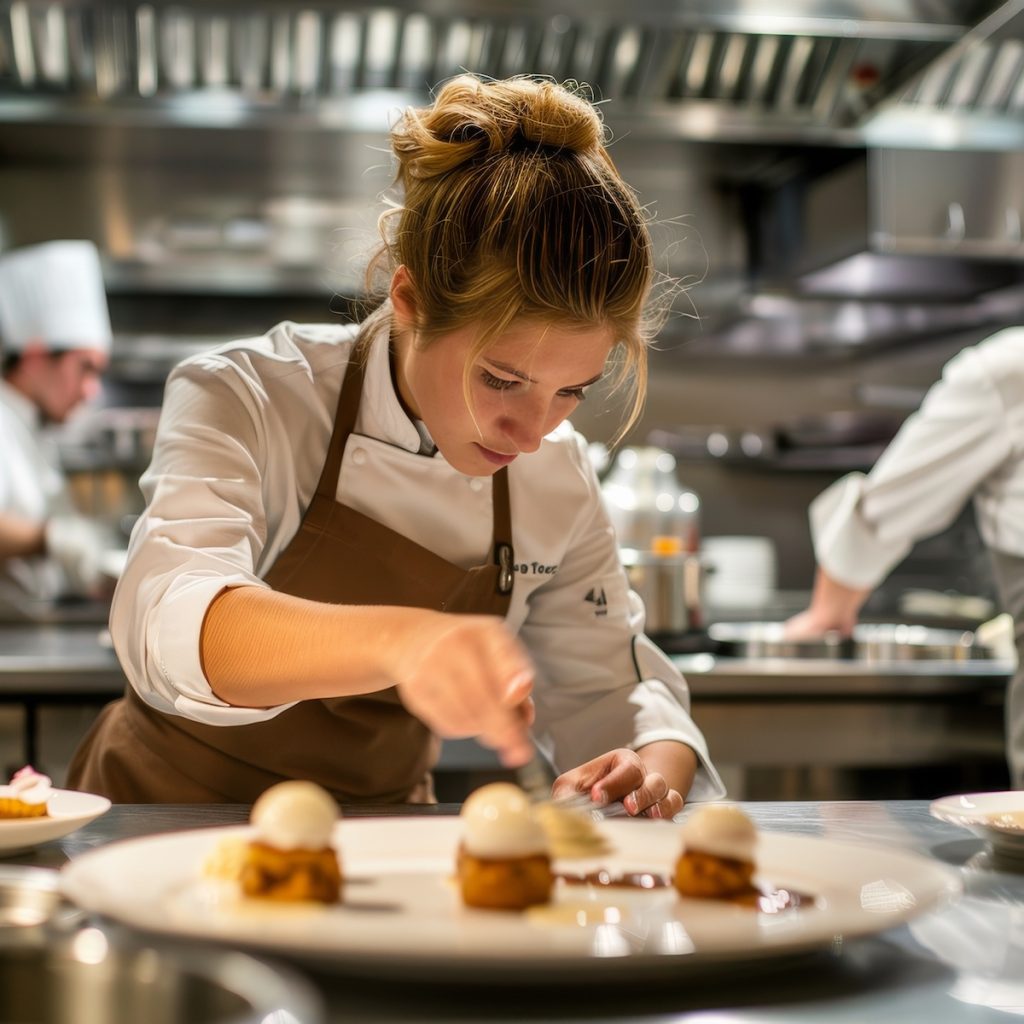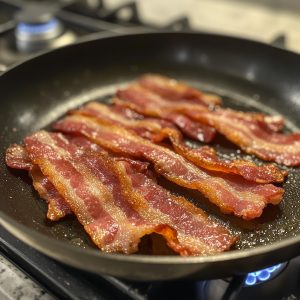How Do Baking Schools and Pastry Schools Differ From One Another?
Choosing between baking school and pastry school can be challenging for culinary enthusiasts. While both programs are passionate about creating delectable treats, they cater to different skill sets and culinary aspirations.
Baking school encompasses a broad spectrum of techniques, focusing on bread, cakes, cookies, and other baked goods. Students learn the science of baking, including ingredient functions, dough fermentation, and baking times. The curriculum often includes bakery management, nutrition, and menu planning courses, equipping graduates with the knowledge to run or work in a bakery setting.
In contrast, pastry school delves into the intricate art of pastry making. This specialized training covers many sweet delicacies, from classic French pastries like croissants and éclairs to intricate desserts and showpieces.
Students refine their skills in sugar work, chocolate tempering, and advanced decorating techniques. Pastry school significantly emphasizes creativity and precision, preparing students for careers in high-end patisseries, fine dining restaurants, and pastry competitions.
Ultimately, baking and pastry school hinges on one’s career goals and interests. The baking school offers a comprehensive foundation for those looking to excel in various baking disciplines, while the pastry school provides a focused, artistic education for aspiring pastry chefs.
Baking Vs. Pastry School
Here are the key differences between baking school and pastry school:
- Focus of Study:
- Baking School: Broad focus on various baked goods including bread, cakes, cookies, and pastries.
- Pastry School: Specializes in sweet pastries and desserts, emphasizing intricate techniques and artistic presentation.
- Curriculum Content:
- Baking School: Covers ingredient functions, dough fermentation, baking times, bakery management, nutrition, and menu planning.
- Pastry School: Includes sugar work, chocolate tempering, advanced decorating techniques, and crafting showpieces.
- Skills Emphasized:
- Baking School: Develops foundational baking skills, understanding of baking science, and practical bakery operations.
- Pastry School: Focuses on creativity, precision, and advanced pastry techniques.
- Career Preparation:
- Baking School: Prepares students for roles in bakeries, large-scale baking operations, and bakery management.
- Pastry School: Prepares students for careers in high-end patisseries, fine dining restaurants, and pastry competitions.
- End Products:
- Baking School: Produces various baked goods, from everyday items to specialty breads and cakes.
- Pastry School: Produces refined pastries, desserts, and confectionery items emphasizing aesthetic appeal.
- Course Duration and Intensity:
- Baking School: Often includes comprehensive programs that may be longer and cover a broader range of topics.
- Pastry School: Typically more focused and intensive, with shorter programs dedicated to mastering pastry arts.
- Creativity vs. Technique:
- Baking School: Balances creativity with technical baking skills.
- Pastry School: Heavily leans towards creative expression and detailed technique in pastry creation.
What Should You Do?
Choosing between baking school and pastry school depends on your career goals, interests, and skills you wish to develop. Here are some factors to consider to help you make the decision:
- Career Aspirations:
- Baking School: If you aim to work in a bakery, manage a bakery, or specialize in various baked goods, including bread, cakes, and cookies, baking school may be the right choice.
- Pastry School: If you dream of becoming a pastry chef in a high-end patisserie or fine dining restaurant or participating in pastry competitions, pastry school will provide the specialized training you need.
- Personal Interests:
- Baking School is ideal for those who enjoy the science of baking and working with a wide range of baked goods.
- Pastry School is perfect for individuals who are passionate about creating intricate, beautiful desserts and enjoy artistic, detailed work.
- Skill Development:
- Baking School: This school focuses on a broad spectrum of baking techniques and practical skills, including bakery management and nutrition.
- Pastry School: Emphasizes advanced pastry techniques, creativity, and precision in dessert preparation and decoration.
- Program Length and Intensity:
- Baking School: Often offers more extended, comprehensive programs covering various baking topics.
- Pastry School: Typically offers more focused and intensive programs tailored explicitly to mastering pastry arts.
- Employment Opportunities:
- Baking School: Graduates can pursue careers in various bakery settings, including artisan bakeries, large-scale baking operations, and management.
- Pastry School: Graduates often find opportunities in high-end patisseries, fine dining restaurants, hotels, and as pastry consultants or entrepreneurs.
- Creativity vs. Technique:
- Baking School: Balances creativity with technical baking skills, suitable for those who enjoy both.
- Pastry School: Leans heavily towards creative expression and detailed technique, ideal for those who want to focus on the artistry of pastry making.
- Financial and Time Commitment:
- Baking School: Consider the cost and duration of the program and how it fits with your career timeline and financial situation.
- Pastry School: Evaluate the investment required for specialized pastry training and how it aligns with your career goals.
By reflecting on these factors and understanding your preferences and ambitions, you can decide between baking and pastry school that aligns with your future career in the culinary arts.








2 Responses
hi i wanted to know what is the difference between a pastry university and a pastry school, do they have different subjects or they provide with different degrees ?
Hi Pia, no. Some schools call themselves colleges and some universities.